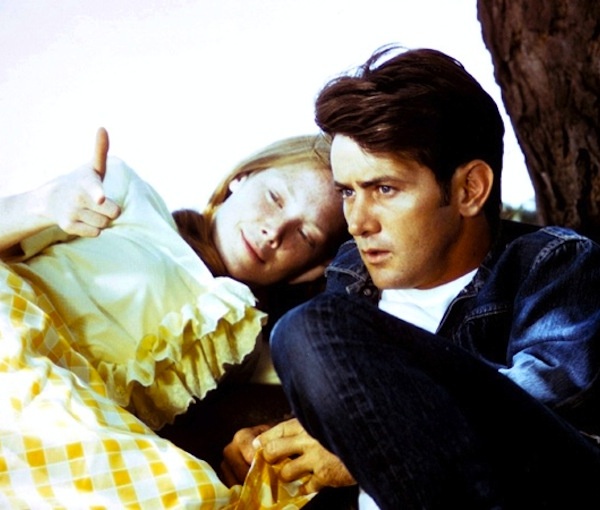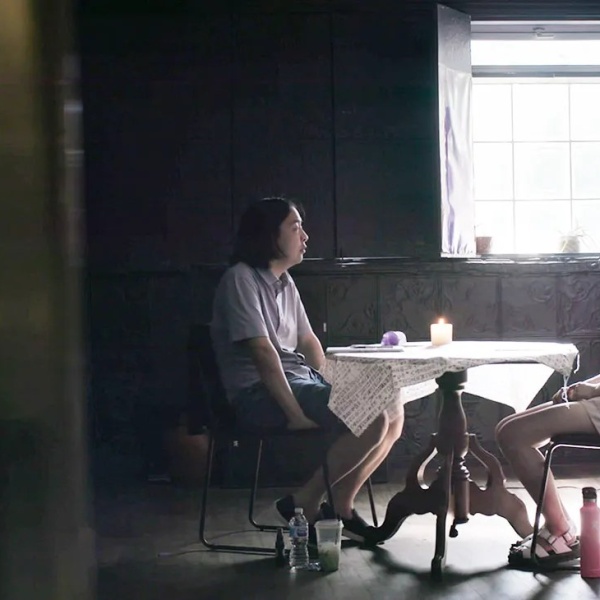Four weeks after its initial release, South Korean horror film “Exhuma” is still burning through the country’s box office. “Pamyo,” as it’s known in Korea (which directly translates to “exhumation for relocation or cremation”), has resonated in a major way with audiences who have shown up in droves to see the story of a shaman named Hwa-rim (Kim Go-eun) and the wandering spirits she takes on with Bong-gil (Lee Do-hyun), her protégé. This week: it expands in the United States.
Just one week into its release, “Exhuma” became the highest-grossing Korean film of 2024 so far, knocking the Timothée Chalamet-starring “Wonka” off the top spot following its delayed release there. Chalamet’s other big film of the moment, “Dune: Part Two,” placed second in Korea for three successive weekends in the wake of “Exhuma” too.
That means that, nearly a month in, “Exhuma” has made $67.8 million with sales of 9.3 million tickets, crossing the nine million admissions mark four days faster than last year’s most-viewed Korean movie, a historical drama titled “12.12: The Day.” That makes “Exhuma” the most successful Korean occult horror film by far, and also places it among the top 25 biggest box office hits the country has ever seen.
It won’t be long until “Exhuma” passes the 10 million — and maybe even 11 million — mark in South Korea, which means at this rate, director Jang Jae-hyun’s third feature is on track to overtake not just one, but potentially three legendary Bong Joon Ho hits: “Snowpiercer,” “Parasite,” and “The Host,” respectively.
Weirder things have happened, and to be fair, “Exhuma” itself is pretty weird, too, with some of its supernatural shenanigans, but how did we get here in the first place? What is it about “Exhuma,” in particular, that’s dug so deep into the nation’s collective consciousness?
It’s worth noting that Jang is not quite a renowned director in the same way that director Bong is, although that’s set to now change following the success of “Exhuma.” His debut feature, 2015’s “The Priests,” performed well with over 5 million ticket sales, landing it a spot in the top 75 highest-grossing Korean films of all time. But his follow-up, “Svaha: The Sixth Finger,” didn’t reach those same heights (although it was still a number one hit domestically in 2019).
Both films dabble in the occult, and both also star big names such as “Parasite” star Park So-dam and Emmy-winning “Squid Game” lead Lee Jung-jae. The same is also true of “Exhuma,” which includes Choi Min-sik, the internationally acclaimed star of “Oldboy,” who has continued to draw in big audiences across the two decades that followed, most notably in South Korea’s highest-grossing film ever, 2014’s “The Admiral: Roaring Currents.” His feng shui master is joined by “Little Women” star Kim Go-eun, whose star is very much on the rise, and Lee Do-hyun, whose recent run of TV hits in “Sweet Home,” “The Glory,” and “The Good Bad Mother” has led him here to his first big feature role.
The stars have quite literally aligned for this film, but that alone doesn’t explain the already enduring success of “Exhuma.”
Homegrown horror films like “Train to Busan” and “A Tale of Two Sisters” have long resonated with Korean audiences, and that’s especially true of occult fare including Na Hong-jin’s “The Wailing” and Kim Seong-sik’s recent hit “Dr. Cheon and the Lost Talisman” — not to mention Jang’s own previous films, too. In a country in which various religions and traditions co-exist, including shamanism, Buddhism, and Christianity, there’s something particularly fascinating about the way these different faiths intersect today in modern Korean society.

“Exhuma” taps into this very specifically Korean take on spirituality with its story of a shaman and her team working to protect the baby of a wealthy Korean American family from a generational curse. Kim Go-eun’s eerie exhumation rituals involve all kinds of loud, tumultuous prayers and singing which are captivating, sure, but it’s the attention to detail in smaller moments that really help ground the exorcisms that local Korean audiences know and recognize — like when the feng shiu specialist tastes the soil to determine the land’s quality or when the undertaker removes gold ornaments from an open coffin.
In the wake of the success of “Exhuma,” The Korea Times even published an article about these burial customs and why the “myoji” (or grave tablets) with which the deceased are buried remain so important, both as a sacred tribute to the departed and also as a valuable historical record of life in previous eras.
Horror is amplified tenfold when the world it’s set in feels more real, so by digging into these Korean-specific historical influences (including an emerging anti-Japanese motif), “Exhuma” channels believable horrors to ground the story’s weirder aspects with frightening precision. “Exhuma” isn’t entirely unique in that approach, but few films of recent years have managed this so effectively, and with so much talent both in front of and behind the camera to boot. Yet that still doesn’t quite account for the film’s success beyond South Korea.
Across the past month, “Exhuma” has already become the highest-grossing Korean film of all time in various Asian territories, including Vietnam and Indonesia, smashing records with ease. Following those lucrative runs abroad, success in North America seems likely too. After grossing $65,000 across just three Los Angeles area screens in the past week, it seems “Exhuma” has the potential to become America’s next big Asian crossover hit with the film’s expanded release this week.
Admittedly, the international reviews published so far haven’t been quite as positive as you might expect, averaging out at 71 percent currently on Rotten Tomatoes. But that’s just from seven reviews so far, and 89 percent of user ratings are positive with a current average of 4.5 out of 5.
It’s the positive word-of-mouth that will help “Exhuma” more in the long run anyway, and that’s especially true of genre fare like this which often has a better shot at translating to international success. Horror tropes are universal to a degree — everyone gets scared — and the visual aspect can help entice casual cinema-goers more resistant to subtitled cinema. South Korean films, in particular, have a strong reputation for horror, and then there’s also the fact that scary movies, in general, continue to be more reliable audience draws — not to mention moneymakers — post-COVID. Think “Five Nights at Freddy’s,” “Scream VI,” and “M3GAN,” just to name a few from last year.
It’s not just international horror that fares well at the North American box office these days either. Last year alone, Japan’s “The Boy and the Heron” and “Godzilla Minus One” grossed $56 million and $46 million domestically even before they both won Oscars this March. Indian crossover hits like “RRR” and “Pathaan” are making an impact, too, signaling a newfound openness to foreign language cinema in the West.
Whether that’s due to the improved accessibility of these films via streaming or whether it’s just a natural result of IP blockbuster fatigue, this all means that “Exhuma” has a real shot at crossing over big time, building upon its record-breaking run in Asia and Korea, especially. It doesn’t hurt that this crossover appeal is baked into the film itself — “Exhuma” actually starts with Hwa-rim and Bong-gil flying to L.A. — so don’t be surprised if Jang Jae-hyun’s smash hit wanders overseas like a particularly determined spirit and starts burning its way through the American box office.
A Well Go USA release, “Exhuma” expands its limited release this week.







